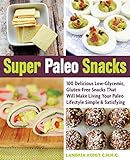Why the FDA is Going to Revoke Soy Health Claims For Heart
Interesting news – the questionable labeling and heart health claims of soy (the#1 GMO ingredient) may soon end!
FDA PROPOSES NIXING SOY HEALTH CLAIM – RESPONSE TO PETITION BY INTERNATIONAL NUTRITION GROUP
WASHINGTON, DC, November 30, 2017. In response to a petition by the Weston A. Price Foundation, the U.S. Food and Drug Administration (FDA) has proposed revoking authorization allowing food manufacturers to claim that soy protein reduces heart attack risk.
“We are proposing a rule to revoke a health claim for soy protein and heart disease,” said a statement from Susan Mayne, director of the FDA Center for Food Safety and Applied Nutrition. “For the first time, we have considered it necessary to propose a rule to revoke a health claim because numerous studies published since the claim was authorized in 1999 have presented inconsistent findings on the relationship between soy protein and heart disease.”
[do_widget id=text-16]
“The FDA’s proposal is a great step forward and very helpful to the public,” said Sally Fallon Morell, president of the Weston A. Price Foundation. “A product as problematic as soy protein should carry a health warning rather than a health claim.”
For many years, the Weston A. Price Foundation, a non-profit nutrition education organization, has provided information to the public showing that naturally occurring soy toxins can cause thyroid disorders and endocrine disruption. The Foundation submitted its petition to revoke the health claim in 2006.
Proponents for the health claim argue that since soy lacks cholesterol and saturated fat, it may provide health benefits by slightly lowering “bad” LDL-cholesterol. “But we’ve since learned that not every way of lowering cholesterol has benefits, and some things that do lower cholesterol actually have shown harm, (and) what we know is that there was never any clinical trials ever that showed eating more soy improves heart health,” said Dr. Karol Watson, a cardiologist and director of the UCLA Women’s Cardiovascular Health Center.
In 2008, the American Heart Association stated that there was not enough evidence to claim a strong link between soy protein and the reduced risk of coronary heart disease. Now, “while some evidence continues to suggest a relationship between soy protein and a reduced risk of heart disease — including evidence reviewed by the FDA when the claim was authorized — the totality of currently available scientific evidence calls into question the certainty of this relationship,” said the statement from the FDA’s Mayne.
“Our review of that evidence has led us to conclude that the relationship between soy protein and heart disease does not meet the rigorous standard for an FDA-authorized health claim,” the statement said.
The FDA’s proposed rule to reverse the claim sets in motion a 75-day public comment period. The comments, along with all related research, will be reviewed to consider whether the rule will become final. If it does, the FDA said, a qualified health claim may be permitted if the agency feels there is evidence to support one—an action that the Weston A. Price Foundation will also oppose.
“Legally, the FDA cannot allow a qualified health claim for foods known to cause harm,” stated Fallon Morell.
The comment period is from Oct. 31, 2017 to January 16, 2018.
The docket number is FDA-2017-N-0763. The link for comments is
https://www.regulations.gov/docket?D=FDA-2017-N-0763
or submit comments to
Dockets Management Staff (HFA-305)
Food and Drug Administration
The Weston A. Price Foundation is a Washington, DC-based nutrition education 501(c)(3) with the mission of disseminating science-based information on diet and health. WAPF publishes a quarterly journal for its 16,000 members, supports 600 local chapters worldwide and hosts a yearly international conference. Contact at (202) 363-4394, westonaprice.org, info@westonaprice.org.





